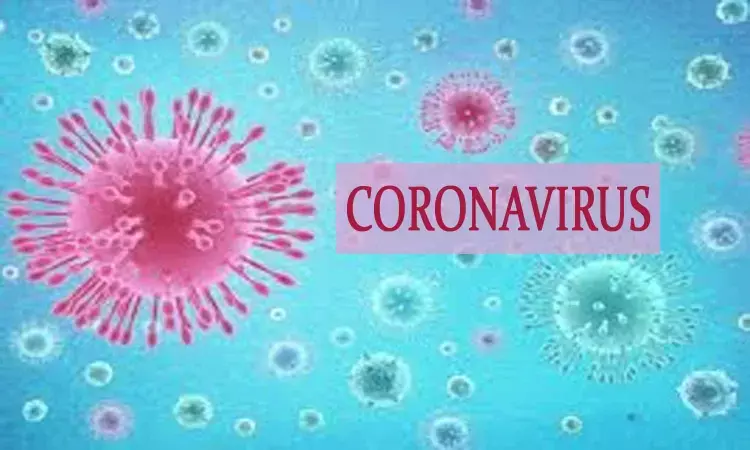- Home
- Medical news & Guidelines
- Anesthesiology
- Cardiology and CTVS
- Critical Care
- Dentistry
- Dermatology
- Diabetes and Endocrinology
- ENT
- Gastroenterology
- Medicine
- Nephrology
- Neurology
- Obstretics-Gynaecology
- Oncology
- Ophthalmology
- Orthopaedics
- Pediatrics-Neonatology
- Psychiatry
- Pulmonology
- Radiology
- Surgery
- Urology
- Laboratory Medicine
- Diet
- Nursing
- Paramedical
- Physiotherapy
- Health news
- Fact Check
- Bone Health Fact Check
- Brain Health Fact Check
- Cancer Related Fact Check
- Child Care Fact Check
- Dental and oral health fact check
- Diabetes and metabolic health fact check
- Diet and Nutrition Fact Check
- Eye and ENT Care Fact Check
- Fitness fact check
- Gut health fact check
- Heart health fact check
- Kidney health fact check
- Medical education fact check
- Men's health fact check
- Respiratory fact check
- Skin and hair care fact check
- Vaccine and Immunization fact check
- Women's health fact check
- AYUSH
- State News
- Andaman and Nicobar Islands
- Andhra Pradesh
- Arunachal Pradesh
- Assam
- Bihar
- Chandigarh
- Chattisgarh
- Dadra and Nagar Haveli
- Daman and Diu
- Delhi
- Goa
- Gujarat
- Haryana
- Himachal Pradesh
- Jammu & Kashmir
- Jharkhand
- Karnataka
- Kerala
- Ladakh
- Lakshadweep
- Madhya Pradesh
- Maharashtra
- Manipur
- Meghalaya
- Mizoram
- Nagaland
- Odisha
- Puducherry
- Punjab
- Rajasthan
- Sikkim
- Tamil Nadu
- Telangana
- Tripura
- Uttar Pradesh
- Uttrakhand
- West Bengal
- Medical Education
- Industry
Lungs of deceased COVID-19 patients show distinctive features

Researchers in a new study in the New England Journal of Medicine (NEJM) have outlined morphologic and molecular changes in the peripheral lung of patients who die from Covid-19.
The researchers at Brigham and Women's Hospital, and a team of international researchers examined seven lungs obtained during autopsy from patients who died of COVID-19. They compared this group to seven autopsied lungs obtained from patients who died of acute respiratory distress syndrome secondary to influenza A (H1N1) infection as well as to 10 age-matched uninfected control lungs.
Both COVID-19 and influenza are the same category of virus and both infect the respiratory tract. While the lungs shared some common features, there were distinctive features related to blood vessels seen in the lungs of patients who had died of COVID-19.
Researchers observed that COVID-19 damaged the endothelial cells (vascular lining cells), causing severe endothelial injury. Patients with COVID-19 showed widespread blood clotting as well as new vessel growth -- the latter likely a result of the body's response to the virus. The team saw signs of a distinctive pattern of pulmonary vascular disease progression in some cases of COVID-19 compared to that of equally severe influenza virus infection.
Some of the key points are highlighted below:
COVID-19 is a respiratory virus that causes a vascular disease.
The damage to vascular cells helps explain the serious blot clotting observed in patients.
A unique response, intussusceptive angiogenesis (IA), is the way the body compensates for the thrombosis and blood vessel damage.
Damaged blood vessels may also underlie other problems seen, such as COVID toe, children with Kawasaki, stroke, and other seemingly unrelated problems seen with COVID-19.
The authors concluded that In their small series, vascular angiogenesis distinguished the pulmonary pathobiology of Covid-19 from that of equally severe influenza virus infection.
This study shows the need for more research on angiogenesis and the vascular effects of COVID-19.
For more details click on the link: http://dx.doi.org/10.1056/NEJMoa2015432
Hina Zahid Joined Medical Dialogue in 2017 with a passion to work as a Reporter. She coordinates with various national and international journals and association and covers all the stories related to Medical guidelines, Medical Journals, rare medical surgeries as well as all the updates in the medical field. Email: editorial@medicaldialogues.in. Contact no. 011-43720751
Dr Kamal Kant Kohli-MBBS, DTCD- a chest specialist with more than 30 years of practice and a flair for writing clinical articles, Dr Kamal Kant Kohli joined Medical Dialogues as a Chief Editor of Medical News. Besides writing articles, as an editor, he proofreads and verifies all the medical content published on Medical Dialogues including those coming from journals, studies,medical conferences,guidelines etc. Email: drkohli@medicaldialogues.in. Contact no. 011-43720751


